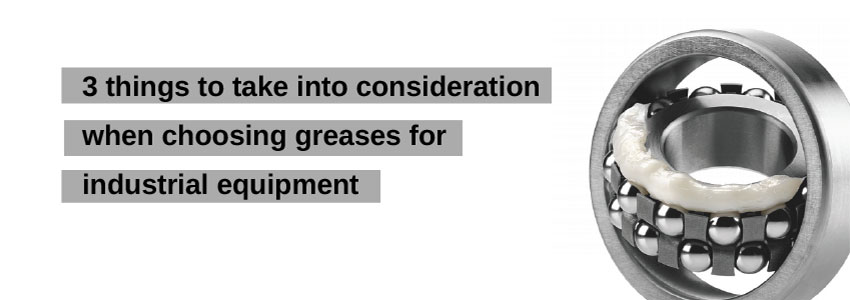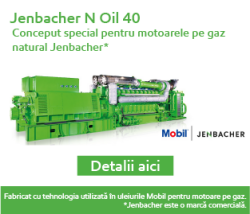3 things to take into consideration when choosing greases for industrial equipment
 3 things to take into consideration when choosing greases for industrial equipment
3 things to take into consideration when choosing greases for industrial equipment
Industrial greases are a key point for the industrial equipment’s well-functioning. Apart from the fact that they lubricate the gears so that they function at their maximum performance, Mobil industrial greases act like a barrier against contamination.
If in the past, simple greases could be used for most of the applications, once this field developed, so did the appearance of greases particular for different types of equipment.
The variety of greases can make choosing the right grease, a difficult task, especially when more and more greases meet the requirements of equipment manufacturers. For instance, greases for electrical engines from the Mobil Polyrex EM series are right for bearings in many industrial applications, from small electrical engines to large electrical engines, to fans.
Apart from the type of equipment and the conditions it functions in, choosing greases should also take into consideration 3 of their components: base oil, additives and the thickening agent. Please find below details on how to choose the appropriate grease according to the 3 components above.
1. Base oil
Generally, an industrial grease is made out of 80 to 97% base oil. As for the base oil, you should pay attention to 2 aspects:
- Oil viscosity: is one of the most important properties of any lubricant, but is often disregarded when it comes to greases. So make sure that you choose the grease with the viscosity recommended for the type of equipment you have and for your operating conditions. Usually, a general use grease has a viscosity of ISO VG 150 or 220.
- Oil type: should be chosen according to the conditions the equipment is used in, like high versus low temperatures. For instance, while synthetic oils are recommended for use in a wider range of temperatures and conditions, mineral base oils are recommended when the temperature the equipment is used in is a constant one.
2. Additives used in greases for industrial equipment
The role of additives in a grease is to bring additional benefits alongside the base oil, thus helping improve features like anti-foaming protection, rust prevention etc.
The additives most frequently used are:
- Antioxidants
- Anti-foaming agents
- Anti-wear additives
- Corrosion and/or rust inhibitor
- Demulsifying agent
- Ameliorators
Thus, greases should be chosen according to the type of additives used, to meet the particular requirements of each specific application.
3. Thickening agent
The thickening agent is a component that makes the grease more consistent and which “brings” all the components into one single unit. A good thickening agent will be compatible with the recommendations of the equipment manufacturer and will be able to resist in extreme conditions where the equipment functions. There are many types of thickening agents, but the most frequently used are:
- Metallic soaps (lithium)
- Complex soaps (complex lithium, complex aluminum etc.)
- Organic and inorganic solids (bentonites, polyuria etc.)
Every type of thickening agent has its own particularities and is recommended for certain applications. In this respect, always regard the recommendations of equipment manufacturers related to the appropriate thickening agents for your application.
The wide range of equipment used in different industry sectors can make it difficult to choose a grease, but if you check the 3 components above, you will make sure you are always making the right decision.
Also, the Star Lubricants agents are at your disposal and can recommend the Mobil grease that will help you increase performance of your industrial equipment. Click the image below to get a customized offer for the appropriate Mobil greases for the industrial equipment you own.







